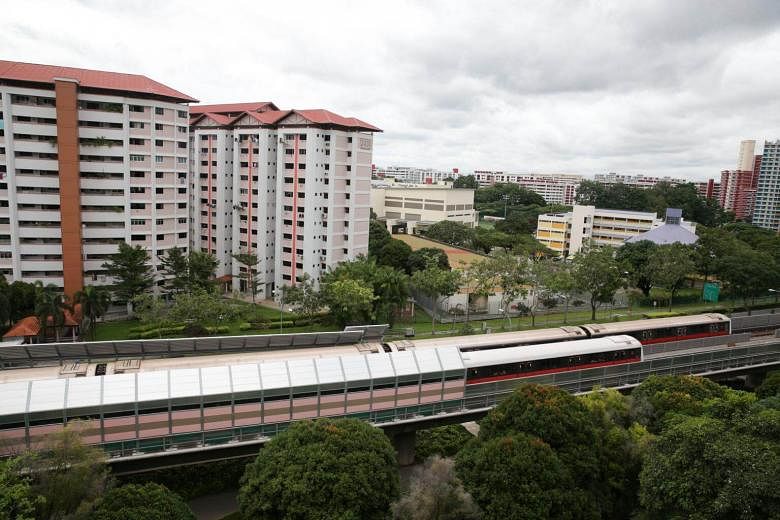SINGAPORE - The second phase of a project to install noise barriers along elevated MRT tracks will be pushed back by three years, and finished in 2022 instead of 2019.
Announcing the new completion date on Tuesday (April 4), Transport Minister Khaw Boon Wan said in Parliament: "There has been a delay due to the need to review the effectiveness of phase one."
Mr Khaw said the tender for phase two, which is expected to cover about 9km of tracks, will be called in the next couple of months.
After the tender is awarded, the Land Transport Authority (LTA) will require time to finalise the designs for each of the locations where the barriers will be constructed, Mr Khaw said.
Installation of the barriers will start in 2020 but the timeline will need to be "closely coordinated with many other rail maintenance, improvement, and upgrading works that compete for the very limited engineering hours", added Mr Khaw.
Mr Khaw was responding to MP Lee Bee Wah (Nee Soon GRC), who asked about noise barriers at the tracks near Khatib MRT station, a stretch which has been identified for phase two.
Works to construct noise barriers at MRT tracks started at the end of 2013, to help reduce noise levels for passing trains by about five to 10 decibels, providing nearby residents with a better living environment
The first phase of the project was split into two contracts, the first involving 10km of noise barriers at 16 locations, which included Admiralty, Marsiling, Sembawang, Ang Mo Kio, Pioneer and Yew Tee.
The second contract under phase one, for 3.5km of noise barriers in Clementi, Eunos and Lakeside, has a target finish date for later this year.
Ms Lee said quite a number of her residents had requested the barriers because their sleep had been affected by the noise.
Regarding the project's delay, Mr Khaw said: "We were asked to do a post-budget review before because this is a huge project involving hundreds of millions of dollars, so I think rightly the treasury required us to first break it up into two phases and to do phase two after we have a good review of the results of phase one."


